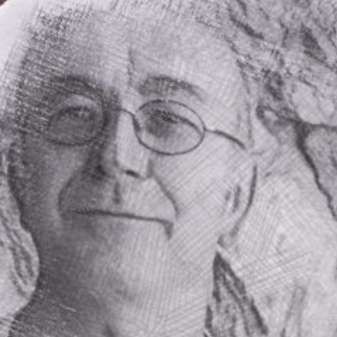If you want something done, ask a busy person – the old adage goes. With three albums released in the last year, a recent concert of works by Gavin Bryars only one week behind them and the premier of a chamber opera (The Okavango Macbeth) scheduled for mid-April, Mr. McFall's Chamber still found time to perform two new commissions in a programme entitled, Mad March Week 2. Each new work was flanked by favourites from the ensemble's regular repertoire, many of them excellent arrangements and transcriptions from the pen of the eponymous Robert McFall.
The group comprises a string quartet (Cyril Garac, Robert McFall, Brian Schiele, Su-a Lee), with double bass/bass guitar (Rick Standley), piano (Paul Harrison) and whichever additional instruments, or voices, the programme requires – in this case Stuart Brown on drums, and Maximiliano Martín on clarinet – the focus of the new commissions.
The first commission was ExtrApollination by Tim Garland – renowned jazz saxophonist/clarinettist/flautist and composer. The title, a conflation of extrapolation and pollination is due to the fact that each of the three movements derives from material exposed in the virtuosic opening solo clarinet passage – wonderfully played by Maximiliano Martín. Changing pulse is at the heart of this work. In the opening movement, To The North London Metropolitan Line, the idea of accelerating wheels upon rails was effectively conveyed by changing metre. The varying pulses of the central movement, To Robert Stevenson (whose Bell Rock Lighthouse celebrates 200 of service year) makes for an edgy nocturne, reminding us that lighthouses represent danger as well as safety. The dynamic finale, To Paco de Lucia, refreshingly free of all flamenco cliché, enjoyed tensions created by differences in length of bar and length of phrase. The playing in this premier was excellent and I couldn't help feeling that the composer, and the various dedicatees, would have been very happy with this.
Martin Kershaw, a regular in the Scottish National Jazz Orchestra, and leader of many of his own projects, is also a fine sax/clarinet player. His ambiguously entitled Closing In could possibly refer to the fact that the we close in on the only unmistakable statement of the theme as this variation-based work nears its end. Alternatively, it could allude to the way in which moments of variation close in on particular harmonic or melodic aspects of the theme. The piece featured a catchy montuno, whose repetitive nature freed up drummer, Stuart Brown, to enjoy some nifty rhythmic play. In his own programme note, Kershaw expressed the hope that the listener would enjoy “a musical a journey where the process of getting there is as gratifying as arriving.” This is a journey I would like to retake and look forward to another hearing of this engaging work.
McFall's Chamber is nothing if not eclectic. Also featured that evening were: Puccini's E Lucevan el Stelle, Joe Zawinul's A Remark You Made – featuring beautiful fretless bass guitar playing by Rick Standley, expressive melodic cello work by Su-a Lee and quixotic piano work by Paul Harrison; Frank Zappa's G-Spot Tornado – a joyous example of the dynamism and colour which can emerge from audacious and unlikely arranging ideas.
Two favourite composers enjoyed heightened exposure: Astor Piazzolla and Raymond Scott. The evening opened with an shimmering arrangement of Piazzolla's Libertango, featuring both the drive associated with the composer and the sensitivity I've long enjoyed in this ensemble. The more sultry Milonga del Angel ushered us along the untrodden path from G-Spot Tornado to Closing In. Four programmed works by quirky 1930s band leader, humourist and engineer, Raymond Scott supplied the element of fun which is part of every McFall's gig I've attended: Tobacco Auctioneer, Curley Cue (a curlicue clarinet feature); Oil Gusher and Portofino, featuring the irrepressibly ebullient Su-a Lee on musical saw. I was delighted to hear that the encore was to be my own favourite piece by this maverick, The Penguin.
Robert McFall humorously referred to an unkind critic's use of the term church notices to describe his introductions and mentions of future events. This is one of the features of McFall's gigs I especially enjoy – the uncommon combination of informal, conversational communication and expressive, virtuosic playing. Don't miss an opportunity to see this unique ensemble if they appear near you.


